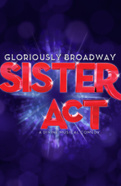Alan Menken on Working with Whoopi and Bringing the Beloved Film Sister Act to Broadway
About the author:
Composer Alan Menken’s resume, which includes scores for musicals like Little Shop of Horrors, The Little Mermaid and Beauty and the Beast, certainly speaks for itself, but there is one distinction that sets it apart: The prolific composer has won a total of eight Academy Awards, more than any other living individual, and has been Oscar-nominated a total of 19 times. After the death of his original writing partner Howard Ashman, Menken worked with Tim Rice to complete Aladdin (a stage adaptation of which is preparing to open in Seattle this summer), collaborated with Stephen Schwartz on Pocahontas, The Hunchback of Notre Dame and Enchanted, with David Zippel on Hercules, and with Glenn Slater on Tangled. Menken and Slater are now back on Broadway with an irresistible 70s-tinged original score for the musical Sister Act. Broadway.com asked this prolific composer to share why he tackled this iconic project, and how having original star Whoopi Goldberg on board is intimidating, but in a good way.
![]()
When Peter Schneider first approached me about adapting Sister Act for the stage, it wasn’t a slam dunk to say yes. He had worked with me on Little Shop of Horrors and gone on to become the head of Disney, and when he left the studio he had the right to produce certain theatrical properties that Disney had the rights to, one of which was Sister Act. I had a lot of trepidation about the high profile of the movie, and having to deal with the songs that were in it. It’s like anytime somebody wants to adapt The Graduate: What do you do with the song “Mrs. Robinson?” I think I scared away any comments about including “My God,” or any of the hits from the film, by saying “Don’t you dare!” I didn’t think it was good for the show, and it wasn’t something I wanted to be saddled with as a composer. At that time, people were already starting to get a sense of weariness about movies coming to the stage, but [lyricist] Glenn Slater said, “I know how to do this. You have to take this on.” And I said ok.
My very first thought, the first gut level decision I made, was “I’d like to do this in disco.” It was a flashy era, with the disco balls and sequins, very entertainment oriented and glitzy, and I thought it would really create a strong contract between the world of show business and the world of the convent. I’m a very style driven composer, and I like to give every project its own unique stamp. Taking the show in that stylistic direction also helped in separating from the movie’s music. Those songs simply wouldn’t have fit, and they’re actually quite low energy compared to what we have on stage. They’re wonderful for the film, but Sister Act the musical is a show that thrives on a high degree of energy, and disco really provided that.
After looking at the material and saying "OK, this is Deloris Van Cartier’s story," I wanted to try out the style. Even though, traditionally speaking, you’re never supposed to write your opening number first, the first song that Glenn and I wrote was “Take Me to Heaven.” Since we already knew the structure, we knew it needed to be hot and sexy at the top of the show, and directed to God at the end of Act One. It’s definitely a Donna Summer pastiche, and people loved it. The style worked.
Whoopi Goldberg didn’t find out about the project until I was invited to an artists' dinner at Mayor Bloomberg’s home. A lot of New York artists were there, including Whoopi, and after I played a medley someone asked, "What are you working on now?" I said, "I’m doing Sister Act." And I heard a voice go, "What?!" I said, "Whoops!"
Peter Schneider had made a concerted decision to separate from the movie, but once Stage Entertainment was on board as a producer, Whoopi became incredibly involved, and she’s been a great collaborator and a great friend ever since. It was intimidating to have her on board, but in a healthy way. When I first met with her she didn’t know any of our score, and trust me, she’s nobody’s easy sell. I went to her house and played her some of the songs, and once she realized that it was a smart pastiche she said, “I get it. I like it.” There was also a lot of intimidation because this film represents a huge part of her career, and I know it’s been a challenge for her to go from being the star to stepping behind the scenes. That’s not easy. She went into the show in London, and she’s said she won’t go into the show in New York, but we’ll see!
Now we’re open, and it feels great to have the show up and in the shape that it’s in. You juggle so many projects and work on them and work on them and there’s always post-mortems and thoughts of, “What do we do with it next?” Now we all just have to sit back and say: This show is up! It’s on Broadway. This baby can walk on its own.
